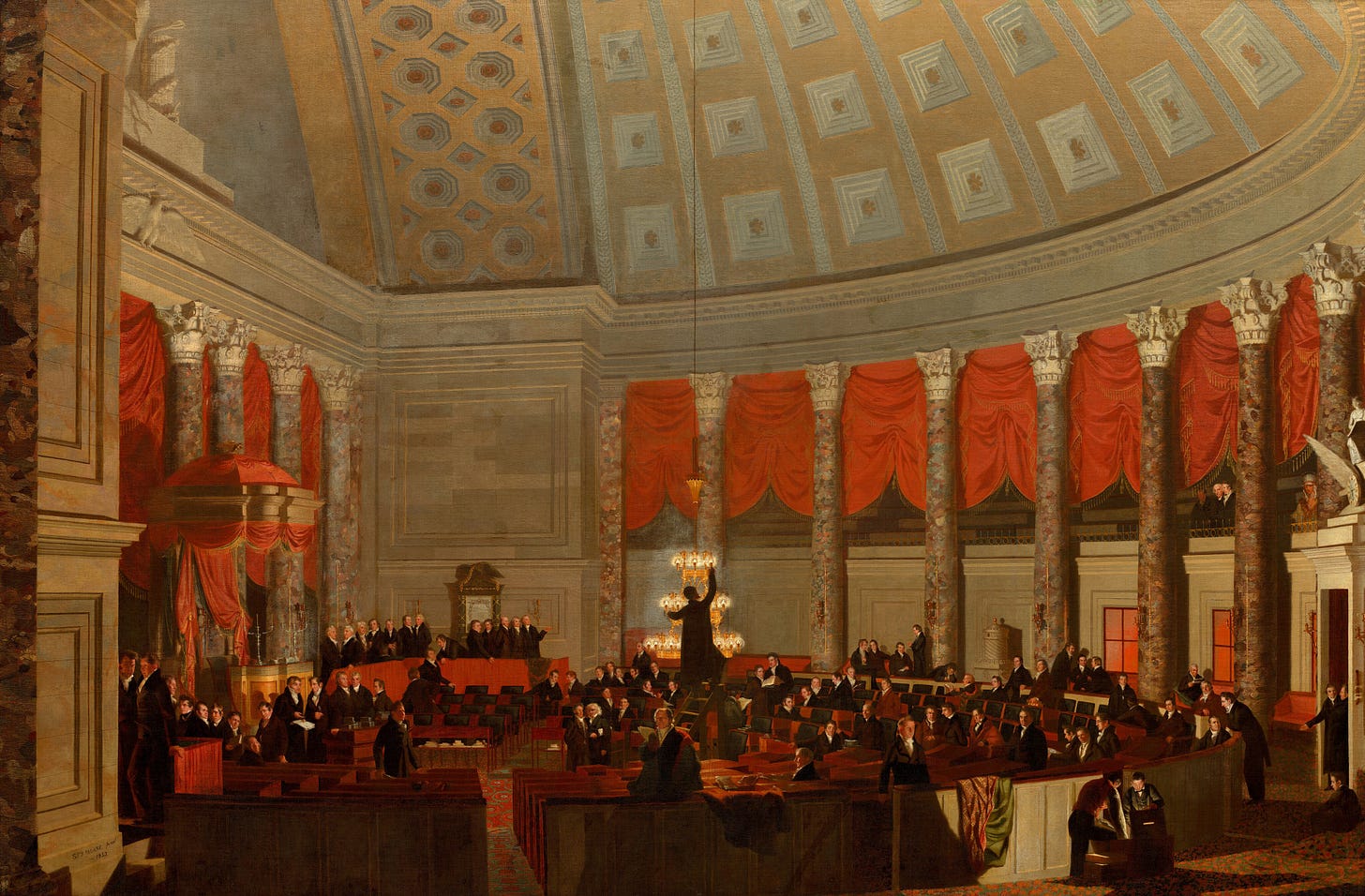"The U.S. Capitol" by Charles Dickens, 1842
"Several gentlemen called upon me who, in the course of conversation, frequently missed the spittoon at five paces; and one ... mistook the closed sash for the open window, at three."
Charles Dickens describes his travels in the United States and Canada in 1842 in his book American Notes.
I visited both houses nearly every day, during my stay in Washington. On my initiatory visit to the House of Representatives, they divided against a decision of the chair; but the chair won. The second time I went, the member who was speaking, being interrupted by a laugh, mimicked it, as one child would in quarrelling with another, and added “that he would make honourable gentlemen opposite sing out a little more on the other side of their mouths presently.” But interruptions are rare; the speaker being usually heard in silence.
There are more quarrels than with us, and more threatenings than gentlemen are accustomed to exchange in any civilised society of which we have record: but farm-yard imitations have not as yet been imported from the Parliament of the United Kingdom. The feature in oratory which appears to be the most practised, and most relished, is the constant repetition of the same idea or shadow of an idea in fresh words; and the inquiry out of doors is not “What did he say?” but “How long did he speak?” These, however, are but enlargements of a principle which prevails elsewhere.
The Senate is a dignified and decorous body, and its proceedings are conducted with much gravity and order. Both houses are handsomely carpeted; but the state to which these carpets are reduced by the universal disregard of the spittoon with which every honourable member is accommodated, and the extraordinary improvements on the pattern which are squirted and dabbled upon it in every direction, do not admit of being described. I will merely observe that I strongly recommend all strangers not to look at the floor; and if they happen to drop anything, though it be their purse, not to pick it up with an ungloved hand on any account.
It is somewhat remarkable too, at first, to say the least, to see so many honourable members with swelled faces; and it is scarcely less remarkable to discover that this appearance is caused by the quantity of tobacco they contrive to stow within the hollow of the cheek. It is strange enough too to see an honourable gentleman leaning back in his tilted chair with his legs on the desk before him, shaping a convenient “plug” with his penknife, and when it is quite ready for use, shooting the old one from his mouth, as from a pop-gun, and clapping the new one in its place.
I was surprised to observe that even steady old chewers of great experience are not always good marksmen, which has rather inclined me to doubt that general proficiency with the rifle, of which we have heard so much in England. Several gentlemen called upon me who, in the course of conversation, frequently missed the spittoon at five paces; and one (but he was certainly short-sighted) mistook the closed sash for the open window, at three. On another occasion, when I dined out, and was sitting with two ladies and some gentlemen round a fire before dinner, one of the company fell short of the fireplace, six distinct times. I am disposed to think, however, that this was occasioned by his not aiming at that object; as there was a white marble hearth before the fender, which was more convenient, and may have suited his purpose better.
From American Notes by Charles Dickens, 1842, available on Amazon*
Classic Travel Tales on Facebook
*As an Amazon Associate we earn a bit from qualifying purchases.
Image: The House of Representatives by Samuel F. B. Morse, 1822, probably reworked 1823, National Gallery of Art, public domain.

